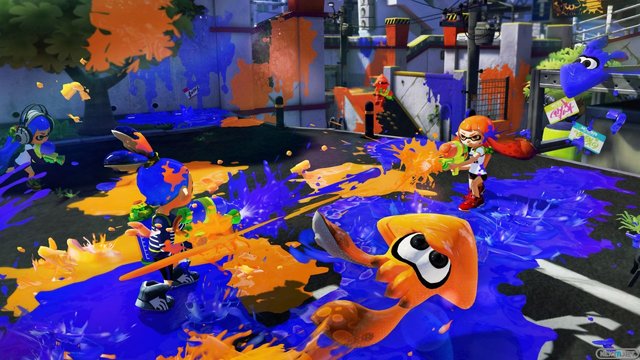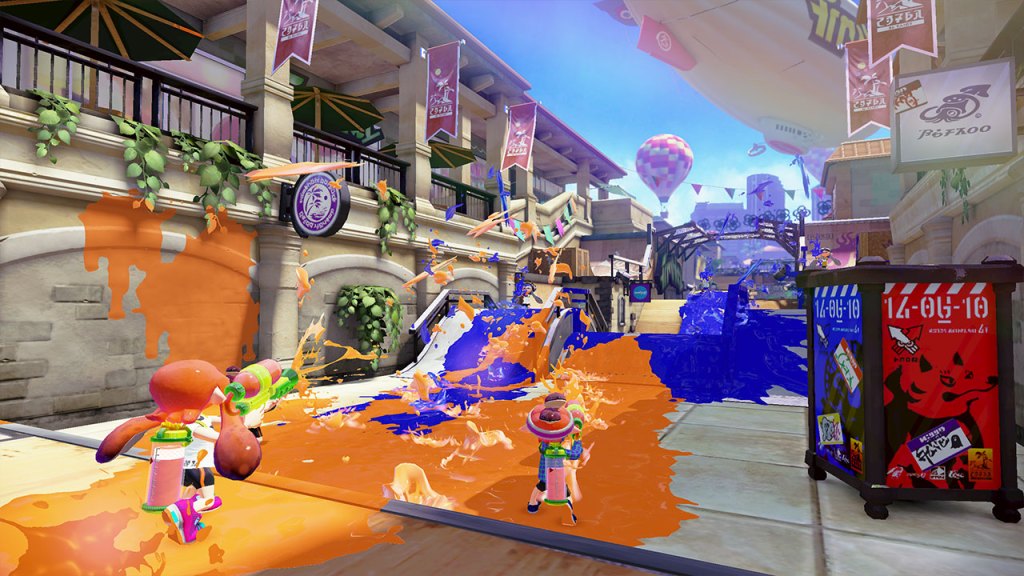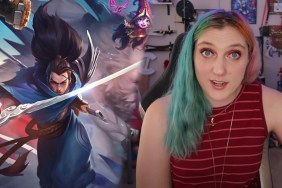It's fresh… exciting… it's so inviting to me.
Splatoon is coming! Splatoon is coming! If you own a Nintendo Wii U or 3DS, and you haven't seen anything about Splatoon, well, you probably haven't turned it on in the past month. Nintendo is banking hard on this new IP, holding several digital events revealing details about the third-person shooter, prepping a new Wii U bundle featuring the game (alongside tried and true staple Nintendoland in North America), and holding several “testfire” events for both press and players to give the game a go. It's no secret that the folks at Nintendo have a lot of faith in the Inklings, and by and large they're not wrong in doing so.
Splatoon succeeds in so many ways, and each element has this overarching theme of “freshness.” The word is used in so many ways (and in so many puns) that it has almost become cliché, but “fresh” is the perfect word for what Splatoon has to offer. From the first moment the Squid Sisters, Callie and Marie (get it? GET IT??), first wish you good luck and ask you to always “Stay Fresh!”, every element offers something fresh, simultaneously decidedly un-Nintendo and yet very much in line with what players expect from the Mario Machine.
Bright, vibrant colors show up in funky ways as players take their newly-created Inklings throughout the city center of Inkopolis in a way that looks like art creation was handed over to concert-goers at a 1996 No Doubt concert. From the electric art displays in the battle lobby to even the neon colors used for battle ink, everything has a very '90s feel and yet (yes, I will probably overuse this word too) would look “fresh” on today's fashion runways. The music is also a fun combo of throwback '90s combined with today's pop stylings. On a strictly artistic plane, Splatoon gives me everything I need and more.
To raise their “freshness” levels, players will head into the Inkopolis tower to the battle lobby, where they'll be matched up in four-by-four battles. Our review copy allowed for two of these battles, Turf War and Splat Zone, and more will be released in various upcoming (and free!) DLC. These online battles make up the bulk of the game, and they're a riot. While Splat Zone is more of a king-of-the-hill style battle, Turf War's goal is to do the complete opposite of what your parents told you as a kid: make a huge mess. Players take their Inkling (humans with the ability to transform into a squid at will) along with three others and paint the town pink… or green, or blue, or whatever their assigned team color should happen to be. Using weaponry appropriately resembling paint guns, paint balloons, and paint rollers, Inklings take off to cover the most area as possible within the time limit.
The controls are not exactly intuitive, and do take a little getting used to. Players can either control the game using the Wii U GamePad's dual sticks or utilize the gyroscopic motion sensors to control the viewpoint of the behind-the-shoulder camera, effectively “attaching” it to their weapon of choice. However, to compensate for the larger-than-normal learning curve (for a Nintendo game), the introductory levels of the single-player campaign do an exceptional job of showing players the ropes. There's not too much hand-holding going on, but it's not a pressure cooker either—players will be instructed on how to complete challenges and overcome obstacles, and that's that. It leaves a satisfactory feeling that one couldn't get if they were directly walked through every single button press in a forced tutorial, and really does a fine job at teaching basic and even intermediate controls that players can later master.
Battle maps are well crafted, with layouts ranging from active warehouses to skate parks to the local mall. Maps have plenty of pathways to run, hide, dodge, and yes, even camp. I did notice, however, that these optimal places for parking and waiting to snipe an opponent comes with a drawback: They're on grates which cannot be inked, so in order to refill your ink, players will need to abandon the spot. Good thinking, Nintendo.
Inklings will need to utilize their ability for transforming into a squid strategically, for although you can't mark territory or splatter opponents as a squid, refilling ink requires players to swim through their own color ink for a period of time. Squid can also move faster than their human-form counterparts, except when blocked by opponent's ink, where they can't swim at all. The squid's faster movement also allows for longer-distance jumps, setting up even better vantage points or quick access to other parts of the map.
Online battles have one major gaffe, however, and it's a serious one: the lack of online voice chat. Ever since Nintendo's announcement that Splatoon was not going to have the feature found in so many of today's games where online multiplayer is a heavy component, the debate has been going back and forth on whether the absence of voice chat would be a big deal or not in the end.
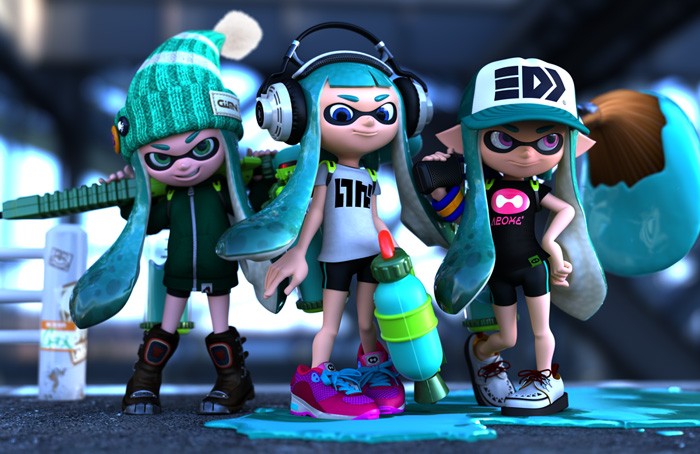
Unfortunately, it is a big deal. While Splatoon offers communication options on the keypad, like taunts or quick requests like “Follow me!” or “C'mon!” I was usually too focused on what I was doing within the battle to notice them or issue any myself. Half the time I'd barely see them on the edge of the screen because I was trying to ink an area or dodge enemy ink. I can do all that while talking on a headset, which would have made team communication and implementation of strategy so much easier.
That said, what really puts Splatoon over the top is the amount of content aside from the main online battle mode. Your weapon, defense, and freshness stat boosts all come from the clothes you wear, the kicks you rock, and the headwear on your (humanoid) dome, and can all be purchased with credits won in online battles. Plus, the Battle Dojo lets you go mano a mano (er, well, tentáculo a tentáculo) against another Inkling in local battles.
The single-player campaign, which details players' roles in the search for the Great Zapfish, the major source of Inkopolis's electricity, as a prominent danger from hundreds of years ago, rears its menacing head, and damn if it isn't good too. I referred to the introductory levels as the tutorial for battles, but to be honest, improving in battles will help in single-player missions and the tricks you learn in solo mode will serve in battles. Granted, that may seem like an "um, duh" statement, but in Splatoon the relevance and connection to one another shines through like one of Inkopolis's neon signs.
Aside from the aforementioned odd controls and lack of voice communication, a few things will throw off the experience here and there, such as the matchmaking. In a few battles, I was on a team of level 3s and 4s paired up against teams in the level 15-20 range. My hope is that this was simply due to the limited amount of players online during pre-release. Having to wait for eight players sometimes sucks too, but at least Nintendo had the foresight to include a mini-game in the lobby, “Squid Jump,” an 8-bit jumper involving a little squid trying to jump out of rising enemy ink. (Not to brag, but I made it past level six. Yeah, I'm pretty good.)
Overall, Splatoon isn't a perfect game, but it's fun. Really, really fun. It's the start of a promising IP for Nintendo, and it's something unique for Wii U as an action-packed shooter that's also still capable of retaining its family-friendly image. It's the '90s paintball craze meets Call of Duty and it's totally da bomb and funky fresh.
-
Art and music kicks, and creates an energetic atmosphere of rowdy fun.
-
Battle maps are well crafted for action-packed battles.
-
Controls aren't exactly intuitive, but easy to learn and adjust to.
-
Lack of voice communication in online battles seriously crimps an otherwise fantastic product.
-
Matchmaking is questionable, though that may have been due to amount of players available pre-launch.
-
Plenty of fun content beyond the multiplayer, from customizing your Inkling to a fun single-player campaign.
-
A promising start to a great new IP!
Splatoon
-
Splatoon #1
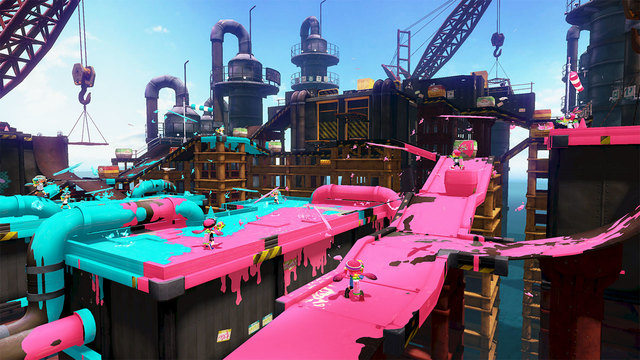
-
Splatoon #2
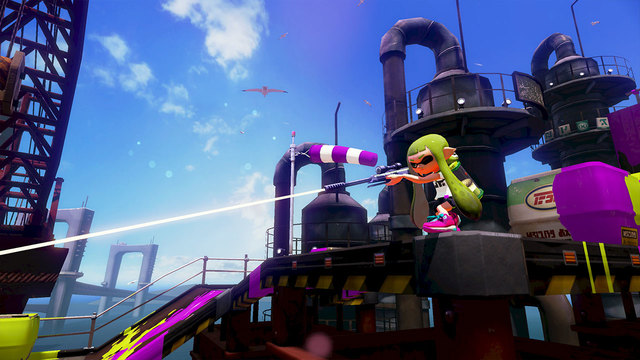
-
Splatoon #3
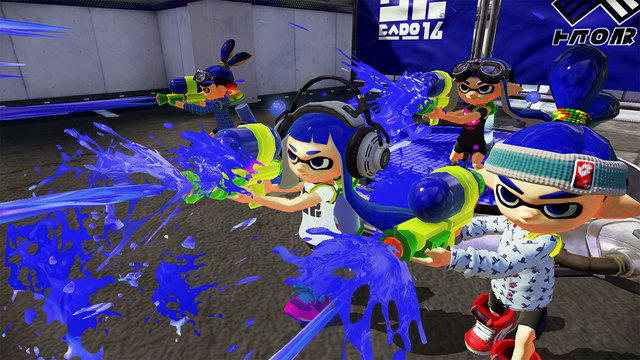
-
Splatoon #4
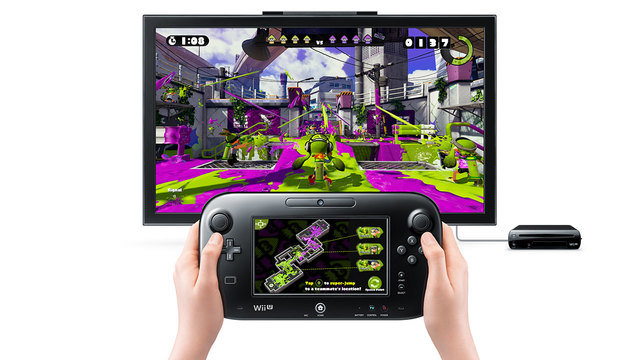
-
Splatoon #5
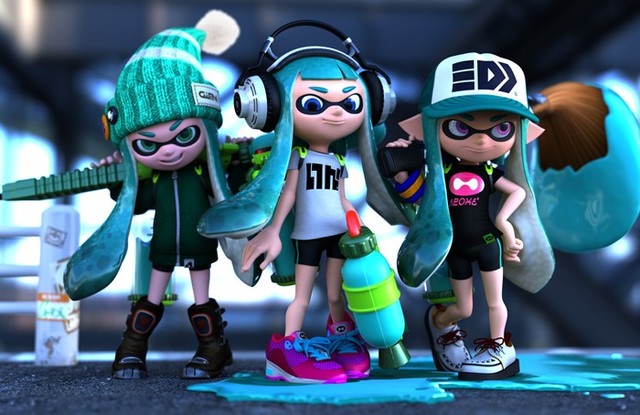
-
Splatoon #6
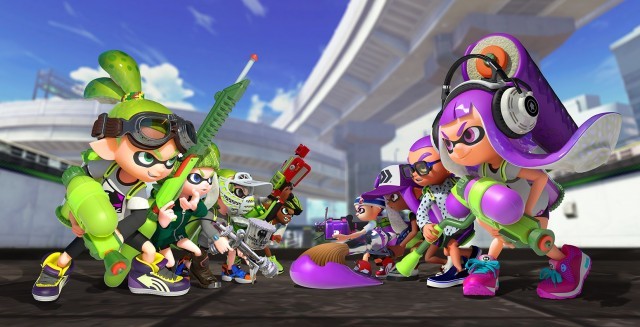
-
Splatoon #7
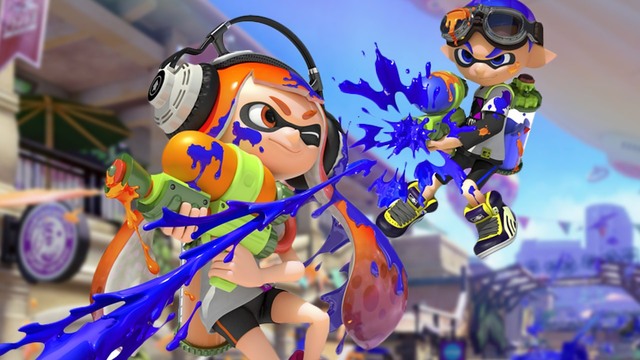
-
Splatoon #8
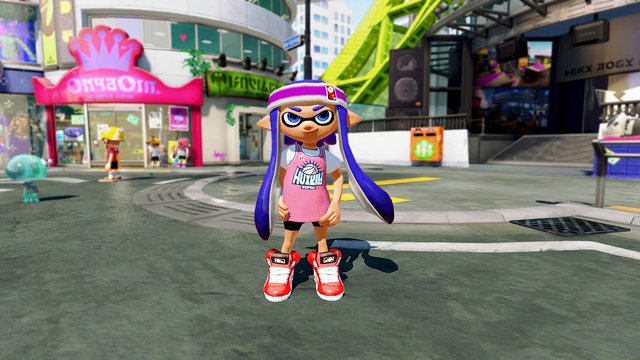
-
Splatoon #9
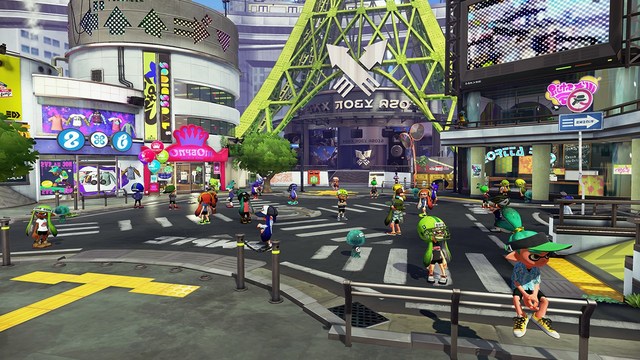
-
Splatoon #10
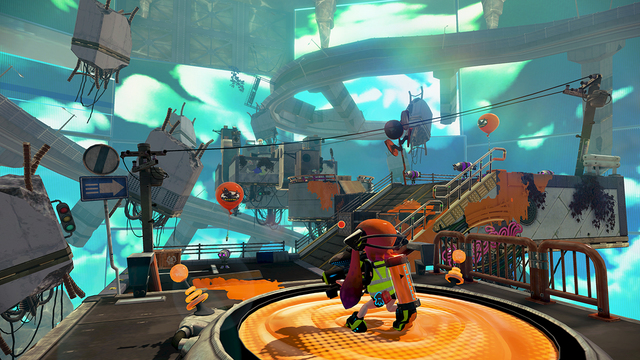
-
Splatoon #11
